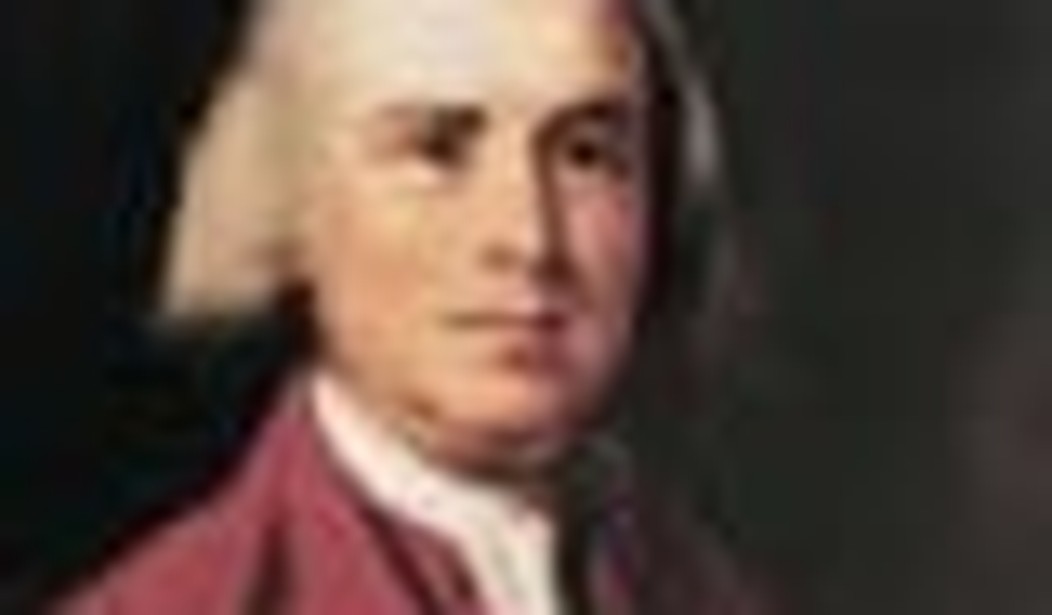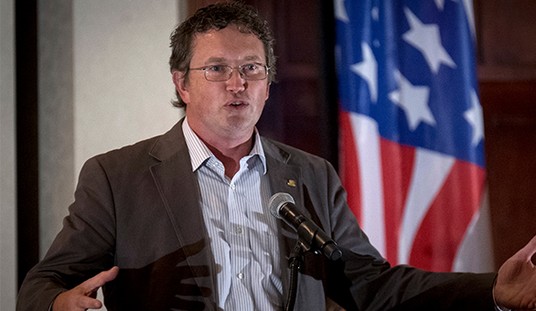James Madison would recoil in horror at the scene now playing out in his namesake town in Wisconsin. But the great republican Constitution-maker’s revulsion would not be brought on by the sight of mobs in the street or under the dome, nor even at a glimpse of Democrat senators in full retreat, seeking shelter at the Tilted Kilt.
No, the governmental crisis against which the 18-century Virginian would declaim with vigor is the danger of democracy … on both sides of this conflict.
Madison’s genius — revealed in the Virginia Resolves which formed the framework for debate in the summer of 1787 — came in recognizing that, in a republic unlike a monarchy, the people don’t need to be shielded from government actions against the whole populace. Instead, citizens need protection against the wild sweep of their own passions that would lead them to use democratic majorities to trample the natural rights of the minority. On the other hand, Madison knew we also risk falling under minority rule if any special interest controls enough of the power levers to scuttle the majority will, or even to supplant it with their own narrow agenda. So, our hallowed system of checks and balances represents the attempt by Madison and others to protect the republic from elective tyranny.
Leap forward to modern day Madison, Wisconsin, and we find a special-interest minority — the big unions backed by President Obama’s campaign machine — facing off against a fresh Republican majority that seems to be saying “we won, so we make the rules.”
So, the Madisonian question here isn’t primarily about whether collective bargaining rights should be limited to salary issues, or whether budget deficits require wage and benefit adjustments.
The real question for a republican lawmaker is how do we deliberately craft a solution that submits to the supreme law of the state established by the sovereign people, while reflecting the will of the majority and protecting the rights of the minority.
Of course, this is not to say that the minority has the prerogative to bind the majority, through mob tactics, to a system of ever-escalating costs with never-escalating value. In fact, the threat of this type of minority rule is precisely why we have bicameral legislatures, and largely independent executive and judiciary branches.
James Madison, in addition to being the political philosopher of the age and perhaps of all intervening ages, was also a practical politician who had served in the Virginia House of Burgesses and in the Continental Congress.
Madison knew that philosophy and politics must meet and embrace, and that this “group hug” typically squeezes a little virtue out of the philosopher.
A second great Madisonian insight was that the national government would relate directly to individuals rather than to states, as had been the case under the ineffective Articles of Confederation. At the federal convention, he didn’t get all he wanted on this score — his proposal that Congress could veto any state law, for example, failed. However, the basic idea survived. Congress could make laws and levy taxes that applied directly to the people, without mediating approval by state governments.
Likewise, in Madison, Wisconsin, today’s big-R Republicans should remember that they legislate with authority from the people, and that their acts impact directly on the people. They are not accountable to any special-interest group, including unions, nor do they negotiate the terms of legislation with them.
The supra-partisan objective in operating a focused, effective government should be to structure employment relationships that value individual initiative, innovation, and industry. These characteristics not only produce good value for the taxpayer, but create a rewarding work environment for the employee. Win-Win Wisconsin.
Republican lawmakers should be as concerned about the taxpayers they employ as they are about those who only fund such employment. But that doesn’t mean they should give in to whatever the union boss says his members want, nor should they fold in the face of political threats.
Perhaps counterintuitively, they must also resist being swept up in the long-festering anger of the majority that would exact retribution on the unionized minority whose machinations have driven the state to the fiscal precipice. Cooler heads must prevail.
Lawmakers must be guided by principles that exalt personal liberty and responsibility as well as foster level playing-field competition. In other words, they must do the right thing for employees, even if employees via their union spokesmen don’t yet realize what that right thing looks like.
At the same time, they must legislate constitutionally. That means that they should not argue that collective bargaining contracts cost too much, or that teachers get paid too much. These extravagant expenses are symptoms. The causes arise from the breach of republican principles. Repair the foundation, and the walls won’t crack.
Republicans are not at war with people who, often involuntarily, pay union dues. In fact, Republicans want what’s best for government employees.
This is not to say that there can never exist a place in republican government for organized labor. Most folks want a challenging, rewarding work environment structured for long-term sustainability. The ideal public-sector union might help them to achieve this via professional standards, continuing education opportunities, networking to disseminate best practices, and by providing a feedback loop with the public who is the real boss.
If unions somehow transformed themselves from mandatory collective-bargaining shakedown artists and political operatives at odds with the taxpayer, into value-adding voluntary associations of excellence, their members would be in demand in the labor market — whether private or public sector — rather than stomping, clapping, and chanting in the streets offending the very citizens they aspire to serve.
Madisonian republicans seek energetic effective government within the focused sphere in which government must operate. They legislate for individuals, not groups. And they protect the rights of the minority as they reflect the will of the majority under the umbrella of sovereignty established by we, the people.
In other words, Wisconsin Republicans, and their associates nationwide, have an opportunity to teach the public school teachers about the principles that undergird our great republic, to rise above the partisan jousting, and to thus demonstrate credible concern for the general welfare of all citizens.
If Republican republicans restrain their passions, deliberate on their constitutional options, and legislate with bold conviction, then from the still-supple parchment page of history, we’d hear James Madison exclaim: On Wisconsin!









Join the conversation as a VIP Member